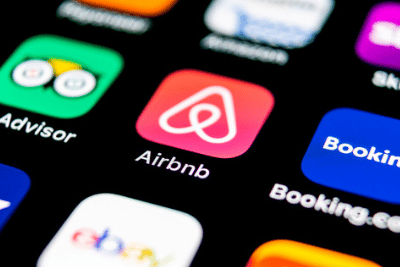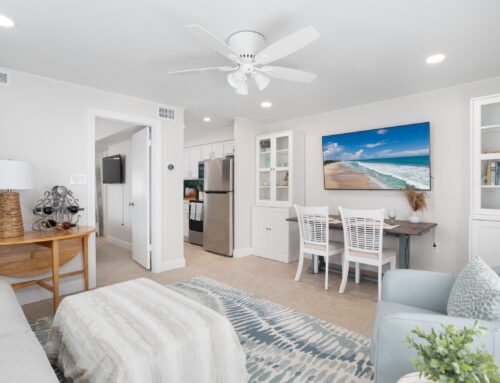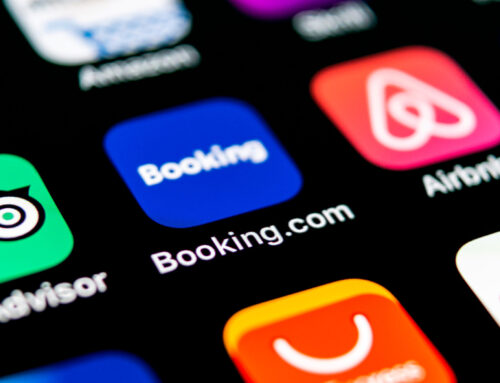Both homeowners and investment property owners should consider the possibility of renting their property short term on a holiday letting site like Airbnb.
Short-term lettings can be very profitable compared to more traditional rental properties. While the average weekly rent for a property in one of Australia’s major cities is less than $500, the average Airbnb weekly rent is over $1300.
However, listing your property on Airbnb is a more “hands-on” option than long-term letting. You’ll need to be prepared to do more work, and preparing your property for Airbnb is different to preparing it for long-term rent. Like many other decisions in life, there is a tradeoff to be made. Long-term rentals are more of a “set and forget” business model, while Airbnb takes more effort but offers a higher return. Here are some of the questions you should ask yourself before making your choice:
Is short-term letting allowed?

Holiday letting on sites like Airbnb is a more casual arrangement, and so property owners aren’t subject to the same stringent laws as traditional landlords. However, there are still regulations you need to adhere to, and it’s important to check exactly what these are before you list your property.
If you own an apartment within a block or complex, sometimes renting property on a nightly basis is prohibited. While many apartment complexes do allow short-term rentals, it’s important to check first.
Even if you own a standalone house or another type of property, you’ll need to check with your local council about their rules and regulations for short-term holiday rentals. These can vary quite a lot across different states, so it’s important to make sure that you’re on the right side of the law — just as you must do if you’re renting out property long-term.
Have you considered the tax and insurance implications?
Just like traditional long-term property rental, the income you make from renting your property on Airbnb is subject to taxes.
However, you can often claim back the money you spend on furnishing, cleaning, internet, repairs and other expenses — an attractive advantage for Airbnb hosts.
You’ll need to be highly organised about holding receipts and keeping track of your spending on supplies and services. It’s best to seek advice from a tax agent to see how your current tax status will be affected and how you can make the most of your tax deductions.
If you decide to rent on Airbnb, check that your insurance policy will cover short-term stay rental, and if it will affect your premiums.
Is your property in a suitable area?
Not all properties will do well on Airbnb. If you’ve bought property in a popular holiday area or in the city centre, you’re in luck – these locations are usually sought-after with tourists and people on business trips.
Properties in the suburbs won’t attract travellers willing to pay the same nightly fees as they would for a city-centre location, but they can still be attractive if you’re close to transport links and other amenities.
You can use a site like AirDNA to find out if your property is in a good location for Airbnb rental, and the nightly rate you can expect to make.
This isn’t to say that properties out in the sticks have no hopes of being rented, but you might need something else to attract visitors. Unique properties and those with amazing views tend to do well, even if they’re not in the most popular locations.
Have you “staged” your property?
You obviously can’t rent an unfurnished property on Airbnb. However, even if your property is already furnished, you’ll need to pay more attention to its overall appearance than you would with a standard long-term rental.
Properties must look great to attract Airbnb guests, and this means taking particular care to make sure your interior design is top-notch. Select furniture and accessories to create an inviting place to stay.
People browsing properties on Airbnb don’t get to come and see them in person before they stay so they’ll be relying on your photographs to get a good idea of the property. Successful hosts often invest in professional photography to make sure their listing looks as attractive as possible.
Remember you’ll also need to supply kitchen appliances, cooking equipment, and tableware – none of which is as standard in a traditional rental property. It’s easy to forget about these costs when comparing Airbnb vs traditional rental profit, so make sure you include all costs when you’re running your figures.
How much time do you have?
Acting as landlord for a long-term let is a fairly hands-off task. While tenants may call on you from time to time to organise repairs, or you may have to chase up the odd late payment, rental income is traditionally passive.
Airbnb guests, on the other hand, require a lot more care and attention. You’ll need to follow up with reservation enquiries and feedback, manage check-in and check-out, clean the property, and be on-call for any other guest needs like transportation or unexpected emergencies.
This can easily be a full-time job, particularly if you own more than one Airbnb rental property. For this reason, many hosts choose to outsource tasks like cleaning, or use the services of a property management company like HomeHost. This enables them to benefit from the flexibility and extra income Airbnb offers without the extra time commitment and hassles.
Are you a people person?
Airbnb prides itself on offering a home away from home, and for this reason, hosts must think of themselves more as hospitality providers than landlords.
The personality and helpfulness of the host can mean the difference between a positive review and a mediocre one, so as well as providing practical assistance with check-in and cleaning, good hosts are friendly and personable and offer insider knowledge on the local area.
If you don’t like meeting and talking with lots of new people, you might want to stick with a role as a traditional landlord. Although again, the services of a property management company specialising in hosting can manage all interactions with guests if you prefer a more hands-off approach.
Are you relying on your property for regular income?
If you need the consistency of a regular monthly income, you may be better off trying to find a long-term tenant.
While renting on Airbnb can be lucrative, the income isn’t guaranteed, and may be subject to seasonal variations.
To make sure you get the best return on your Airbnb property, you need to write your listing carefully to be attractive to searchers, price competitively, and include professional-looking photos.
Have you considered how you will screen guests or tenants?
While Airbnb does allow you to turn down bookings for bad feedback or other valid reasons, you’ll only have access to a limited amount of information about each guest before they book. You can sometimes find out more information by looking them up on Facebook, or Googling their name, but this can be very time-consuming.
On the other hand for long-term tenants, you can screen as you see fit by requesting references, financial statements, proof of employment, and other information to put you at ease that whoever is staying in your property will pay you on time and respect your property.
To give you peace of mind, a good short-term property management company can vet potential guests for you to reduce the risk of getting a bad one. The vast majority of Airbnb guests will treat your home as their own and leave fair feedback, so as long as you’re active in your interactions with guests and actively manage your property (or use a good host company to do it for you) you shouldn’t have any issues.
Is Airbnb the right choice for you?
If you’ve crunched the numbers and done the appropriate preparation, you may well have come to the conclusion that letting your property short-term on a site like Airbnb offers profit that’s worth the extra effort.
However, if you’re tempted by the extra cash but put off by the work involved, using the services of a property management company specialising in short-term lets can be a great compromise.
These services manage all the time-consuming tasks that come with renting out your property short-term such as managing check-in and check-out, cleaning, dealing with enquiries, and organising transportation for guests.
To find out more about the Airbnb property management services that HomeHost offers, call 1300 17 17 18 for more information.






